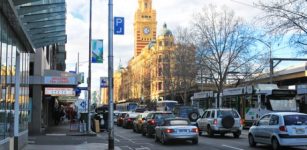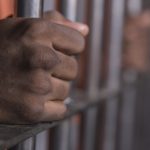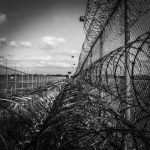Blaming Immigrants for Melbourne’s Youth Crime Wave: Fact vs Fiction

Recent crime statistics fly in the face of mainstream media reports that Sudanese immigrants are largely responsible for a rise in youth crime in Victoria.
The statistics suggest that youth crime is overwhelmingly committed by those born in Australia, leading to criticism of the alleged profiling of Sudanese teenagers.
Racial profiling
Youth worker Deng Maleek says young people of Sudanese background are regularly being arbitrarily stopped and accused of involvement in criminal activity; specifically, of being members of the ‘Apex gang’. According to Mr Maleek:
“Young adults, not kids, who were engaged in education or working part time and congregate in public spaces and just to socialise, will be randomly checked [to see] if they are gang members.”
Victorian police deny that any such profiling occurs. “We do not believe there is a problem with racial profiling within our organisation. Operationally, our police respond to a person’s behaviour, not the colour of their skin,” a police statement asserted.
History of profiling
Past events raise questions about whether racial profiling occurs in Victoria. In 2013, a lawsuit against Victoria police due to systemic racial profiling of Sudanaese immigrants resulted in a $3 million out of court settlement in favour of the claimants.
In response, the Victoria Police manual was changed last November to expressly prohibit “policing decisions that are not based on objective or reasonable justification, but on stereotypical assumptions about race, colour, language, ethnicity, ancestry or religion”.
Whether that policy has been implemented on the streets is another matter.
Apex membership
The Apex gang has been linked to a spike in carjackings, violent home invasions and armed robberies in Melbourne.
Mainstream media reports that Sudanese members “control the streets” have placed pressure on Victorian premier Daniel Andrews to keep migrants in check.
A recent example of such reporting was a piece by Prue MacSween, who accused Sudanese immigrants with “no skills” of “running riot” in Melbourne, adding “We have to look at who we are bringing into this country.”
Southern Metro Assistant Police Commissioner Bob Hill says the Apex gang has grown to over 150 members after merging with the YCW gang, which is primarily comprised of people from Caucasian, Pacific Islander, Maori, Afghan and Indian backgrounds.
Only a small minority of the gang are Sudanese, with the biggest single ethnic group being Caucasian.
Socio economic factors
Blaming a particular group for crime does little more than stigmatise and alienate them from society – when government funding and policies would be better directed at addressing the underlying causes of offending, including socioeconomic disadvantage.
Sudanese arrivals have the highest unemployment rate of any migrant group, at 25 per cent. In 2011, their average personal income was below $300 a week, as opposed to $577 for all Australians.
Difficulties in obtaining employment are a primary cause of wealth disparity, which can result from a negative perception of the ethnic group.
Crime rates
Figures from the Victoria Crime Statistics Agency suggest that offences committed by ethnic groups such as the Sudanese are dwarfed by crimes committed by those born in Australia.
Australian born youth committed more than ten times as many home invasions and aggravated robberies in Victoria as Sudanese youth, and more than twenty times the number of car thefts.
And while there has been an overall rise in youth crime in Victoria, government would do well to address socioeconomic factors – regardless of ethnicity – rather than using divisive rhetoric and formulating unhelpful policies based upon misleading mainstream media reports.
Racist rhetoric
Anthony Kelly from the Flemington and Kensington Legal Centre says the incorrect assumption that the Apex gang is full of Sudanese youth has fuelled anti-immigration rhetoric, leading to over-policing and the profiling of the Sudanese community.
“We are seeing a whole series of exclusionary impacts from the racialised media coverage,” he said, adding that despite the multi-ethnic composition of the gang, the word ‘Apex’ was becoming a dog whistle for commentators looking to curb immigration.
And it’s not just the media and Premier attempting to capitalise on anti-immigrant sentiment. State Opposition Leader Matthew Guy recently said, “If they are not an Australian citizen, then, frankly, I think they [have] worn out their welcome out and should be deported.”
Mr Maleek says it’s not just first generation immigrants who are affected by racist rhetoric, but also those who have been in Australia for multiple generations. He believes it is counter-productive to stereotype racial groups. “They don’t feel a sense of citizenship anymore and they don’t feel like they belong to this country,” he says, adding that the situation can lead to discrimination and social disunity.
Receive all of our articles weekly
Author






